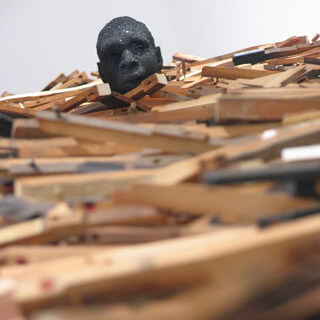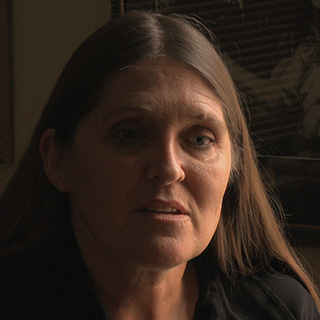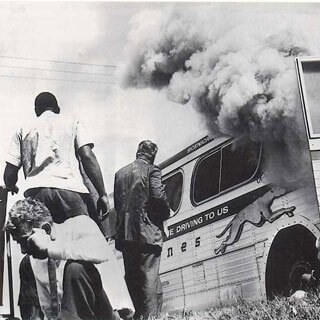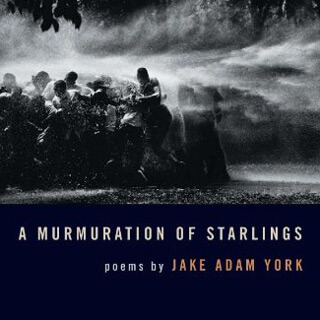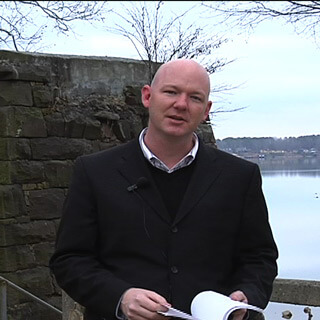Overview
Robert Morgan discusses the tension between specificity and universality in poetry, his relationship with his home geography in North Carolina, and the milieu of "backwater" poets at Cornell (including A. R. Ammons, Jake Adam York, and himself) in this interview with former student Emma Lirette. Morgan also reads and comments on several of his poems.
"Nostalgia May Not Be the Right Word" is part of the Poets in Place series, a Research Collaboration in the Humanities initiative funded through Emory University's Presidential Woodruff Fund, in collaboration with the Office of the Provost. Series producers are Natasha Trethewey and Allen Tullos.
Interview
Part 2: Morgan reads “Backwater” and discusses his history of coming to terms with his origins
Part 3: Morgan reads “Heaven” and discusses the place of nostalgia in his poetry
Part 4: Morgan reads “Rearview Mirror” and discusses the paradox of the mirror
Part 5: Morgan describes his relationships with A.R. Ammons and Jake Adam York, as well as the role of place in poetry
Part 6: Morgan discusses the tension between the particular and the universal
Poems
Terroir
That quality that seems unique,
as thriving from a special spot
of soil, air flow and light specific,
and also frost and winter sleep,
conditions of particular year,
as every instance comes just once
with mix of mineral and grease,
what Hopkins chose to call inscape,
or individuation, sounds
so close to terror you'd confuse
the two, as if the finest and
the rarest blend would come with just
a hint of fear or pain, the sting
and shiver of revulsion with
the savor of the earth and sun,
of this once, not returning, sung
for this one ear, on this one tongue.
Backwater
I used to think backwater meant
remote or backward, out of date,
a place of stagnant poverty.
But found the term in history means
across the mountain watershed
where rivers run the other way
to west, to wilderness, to where
the future waits to open out
its shining promise, destiny.
Backwater meant new water then,
where greatness waited, tilted toward
the sunset rivers of hope where
the worst of us, the very worst
of all, might find a seventh chance.
Heaven
And yet I don't want not to believe in,
little as I can, the big whoosh of souls
upward at the Rapture, when clay and ocean,
dust and pit, yield up their dead, when all
elements reassemble into forms
of the living from the eight winds and flung
petals of the compass. And I won't assume,
much as I've known it certain all along,
that I'll never see Grandma again, nor
Uncle Vol with his fabulations,
nor see Uncle Robert plain with no scar
from earth and the bomber explosions.
I don't want to think how empty and cold
the sky is, how distant the family,
but of winged seeds blown from a milkweed field
in the opalescent smokes of early
winter ascending toward heaven's blue,
each self orchestrated in one aria
of river and light. And those behind the blue
are watching even now us on the long way.
Rearview Mirror
This little pool in the air is
not a spring but sink into which
trees and highway, bank and fields are
sipped away to minuteness. All
split on the present then merge in
stretched perspective, radiant in
reverse, the wide world guttering
back to one lit point, as our way
weeps away to the horizon
in this eye where the past flies ahead.
About the Author
Robert Morgan is the author of fourteen books of poetry, most recently Terroir, 2011. He has also published nine volumes of fiction, including Gap Creek, a New York Times bestseller. A sequel to Gap Creek, The Road From Gap Creek, was published in 2013. A new novel, North Star, is forthcoming in 2015. In addition he is the author of three nonfiction books, Good Measure: Essays, Interviews, and Notes on Poetry, 1993; Boone: A Biography, 2008; and Lions of the West: Heroes and Villains of the Westward Expansion, 2011. He has been awarded the James G. Hanes Poetry Prize by the Fellowship of Southern Writers and the Academy Award in Literature by the American Academy of Arts and Letters. In 2013 he received the History Award Medal from the Daughters of the American Revolution. Recipient of fellowships from the Guggenheim and Rockefeller foundations, the National Endowment for the Arts, and the New York State Arts Council, he has served as visiting writer at Davidson College, Furman, Duke, Appalachian State, and East Carolina universities. A member of the Fellowship of Southern Writers, he was inducted into the North Carolina Literary Hall of Fame in 2010. Born in Hendersonville, North Carolina, October 3, 1944, he has taught since 1971 at Cornell University, where he is Kappa Alpha Professor of English. In 2010 a special issue of Southern Quarterly, edited by Jesse Graves, was devoted to essays about his work.
About the Interviewer
Emma Lirette, originally from Chauvin, Louisiana, lives outside Atlanta with her wife and two daughters. She works as a User Experience Researcher in social media and holds a PhD in American Studies and an MFA in Creative Writing. Her book Last Stand of the Louisiana Shrimpers is forthcoming from University of Mississippi Press in September 2022.
Acknowledgments
"Backwater" and "Terroir" appeared in Terroir (New York City: Penguin, 2011) and are reprinted here courtesy of Penguin Books.
"Heaven" and "Rearview Mirror" appeared in Sigodlin (Middletown, CT: Wesleyan University Press, 1990) and are reprinted here courtesy of the author.
Recommended Resources
Text
Ammons, A. R. Garbage. New York: W. W. Norton, 1993.
———. The North Carolina Poems. Edited by Alex Albright. Rocky Mount: North Carolina Wesleyan College Press, 1994.
———. Ommateum: with Doxology: Poems. New York: W. W. Norton, 2006.
Asimov, Eric. "In Search of Terroir, Ear to the Ground." The New York Times, April 25, 2013. http://www.nytimes.com/2013/05/01/dining/kevin-pogue-seeks-washington-states-top-terroir.html.
Cross, Richard. "Medieval Theories of Haecceity." The Stanford Encyclopedia of Philosophy (Fall 2010 Edition). http://plato.stanford.edu/archives/fall2010/entries/medieval-haecceity/.
Graves, Jesse, ed. "Robert Morgan." Special issue, Southern Quarterly 47, no. 3 (Spring 2010).
Lang, John. Appalachia and Beyond: Conversations with Writers from the Mountain South. Knoxville: University of Tennessee Press, 2006.
Morgan, Robert. Lions of the West. Chapel Hill: Algonquin Books, 2011.
———. The Strange Attractor. Baton Rouge: Louisiana State University Press, 2004.
———. Terroir. New York City: Penguin, 2011.
York, Jake Adam. The Architecture of Address: The Monument and Public Speech in American Poetry. New York: Routledge, 2004.
———. Murder Ballads. Denver: Elixir Press, 2005.
———. A Murmuration of Starlings. Carbondale: Southern Illinois University Press, Crab Orchard Series in Poetry, 2008.
Wade, Nicholas. "Microbes May Add Special Something to Wines." The New York Times, November 25, 2013. http://www.nytimes.com/2013/11/26/science/microbes-may-explain-some-of-the-mysteries-of-terroir-and-wine.html.
Wright, William. "INTERVIEW: Robert Morgan—The Tarheel Wordsmith." Oxford American. January 22, 2013. http://www.oxfordamerican.org/articles/2013/jan/22/robert-morgan-conversation-tarheel-wordsmith/.
Web
Robert Morgan: Official Author Website. 2013. http://www.robert-morgan.com.
"Robert Morgan." Poetry Foundation. 2006. http://www.poetryfoundation.org/bio/robert-morgan.
